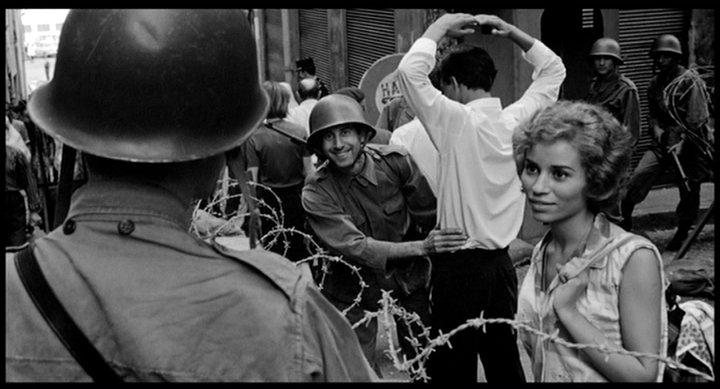Throughout Chinatown the use of sound, like in what seems to be all 1970s movies, was exaggerated but yet appropriate. The first time I noticed this was when the police pulled Mulwray out of the river. As soon as they went to a close up on his face, the non-digetic soundtrack was overly evident and very daunting almost scaring the viewer and leaving an unsettling image in their heads. Afterwards, when Mr. Gitties is exploring the Peach Tree farm, once a shot is fired at his head, the music is then quickly paced making the entire scene way more dramatic than it would have been without the music up until they finally pull Gitties out of his car. Finally, the third very evident use of sound I felt was a little more dramatic than it needed to be (but still worked) was when Mrs. Mulwray and Gitties kissed in the bathroom. The sound behind the scene made it way more intimate than it would have been without probably trying to portray to the viewers the moment when both characters caught feelings for each other.

I also like the use of sound in foreshadowing. When Mrs. Mulwray first tosses her head on the horn of the car it is seen as a comedic action. In the ending scene of the movie, we are reminded of this scene as all other sound is stopped and only the diegetic car horns rings piercingly throughout the night. Because it was previously paired with Mrs. Mulwray as well, the viewer is anxious to see the cause of the noise and is almost devastated when the accompanying sound of her daughter’s screams join in. The sound match emotionally engages the audience as previously they related to her human quality of being clumsy and now are more passionately involved in the tragedy of her death.